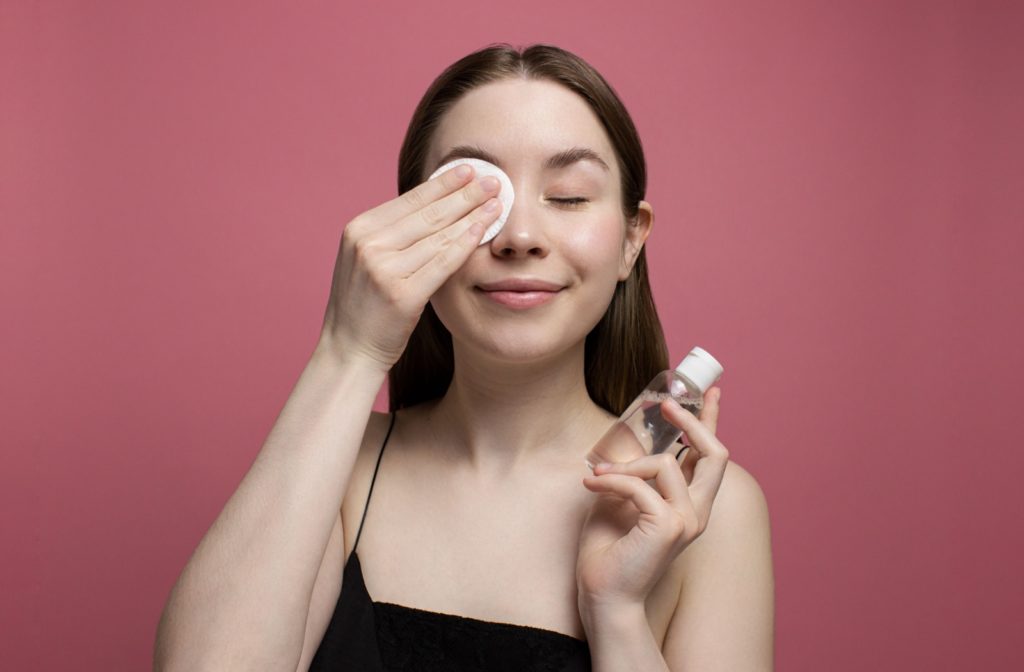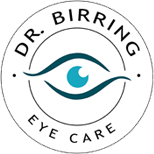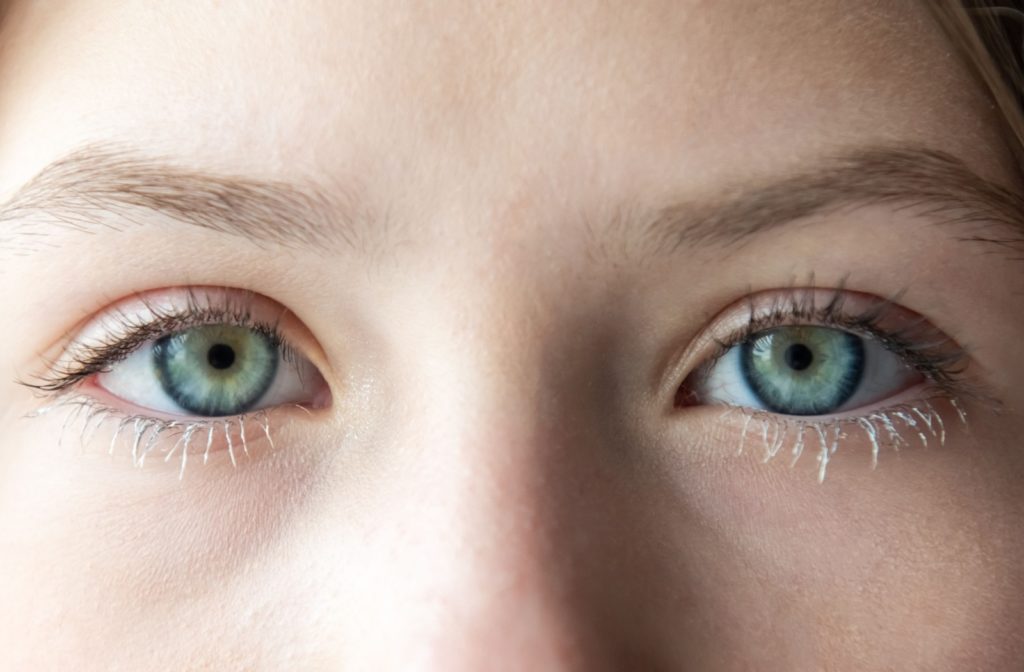From pink eye to dry eye to allergies, we’re all familiar with how itchy and burning eyes can significantly impact the quality of our day. One common eye condition with a similar set of symptoms is blepharitis, which is often not talked about.
However, the crusty, dandruff-like flakes that blepharitis causes to appear on your eyelashes often prove to be a cause for concern. Thankfully, blepharitis is not contagious and can be quickly cleared by regularly cleaning your eyelids.
Understanding Blepharitis
Blepharitis refers to inflammation of the eyelids, usually where the eyelashes grow. This condition typically results from a buildup of bacteria at the base of the lashes, causing irritation and redness. People with blepharitis often experience:
- Red, swollen, and itchy eyelids
- Watery eyes
- Sensitivity to light
- Frequent blinking
- Gritty sensation
- Crusty deposits at the base of your eyelashes (prominent upon waking up)
In severe cases, the condition may even lead to blurry vision. Identifying and addressing the root cause is critical for effective management.
What Causes Blepharitis?
The leading causes of blepharitis include bacterial infections, seborrheic dermatitis, and clogged oil glands. Staphylococcus bacteria, commonly found on the skin, can grow to numerous and eventually lead to infection. Seborrheic dermatitis, a type of eczema, can also contribute to the condition by causing dandruff-like flakes on the eyelashes. Additionally, malfunctioning oil glands within the eyelids can become clogged, triggering inflammation and discomfort.
Certain factors can increase your susceptibility to blepharitis, including existing skin conditions like rosacea or eczema. Using expired or contaminated eye makeup can also elevate your risk. Additionally, contact lens wearers may experience more frequent episodes of blepharitis due to the potential for bacterial contamination.
How is Blepharitis Transmitted?
Many patients worry about whether blepharitis is contagious. The simple answer is no; blepharitis is not generally contagious. However, poor hygiene practices can indirectly contribute to its spread.
For example, sharing towels, pillowcases, or makeup can transfer bacteria that might lead to other infections. Regularly washing your hands, avoiding eye rubbing, and keeping personal items clean can minimize this risk.
Duration of Blepharitis
Acute vs. Chronic Blepharitis
Acute blepharitis develops suddenly and can be more intense, but it often responds well to treatment. Chronic blepharitis, on the other hand, is a long-term condition that requires ongoing management. Understanding the difference between these two forms can help you set realistic expectations for your recovery.
How Long Does it Take for Blepharitis to Go Away?
The duration of blepharitis can vary based on the severity of the condition and the effectiveness of the treatment plan. Mild cases may resolve within a few weeks with proper care, while chronic forms may persist for months or even years. Consistent and diligent treatment is essential for managing symptoms and achieving long-term relief.
Several factors can influence the speed of your recovery, including adherence to prescribed treatments, overall health, and lifestyle habits. Maintaining sound eye hygiene, following your doctor’s recommendations, and addressing underlying conditions can all contribute to a quicker resolution of blepharitis symptoms.

Treating Blepharitis
Treating blepharitis involves a combination of good hygiene practices and medical interventions. Regularly cleaning your eyelids with a warm, damp cloth can help remove crusts and reduce inflammation. Over-the-counter eyelid scrubs and gentle baby shampoo can also effectively maintain cleanliness.
Sometimes, your doctor may prescribe antibiotic ointments or drops to combat bacterial infections. Topical corticosteroids may reduce inflammation, while oral antibiotics might be necessary for more severe cases. Following your healthcare provider’s instructions carefully is important to ensure the best outcome.
Furthermore, making a few simple lifestyle adjustments can significantly improve your condition. Avoiding eye makeup during flare-ups, using lubricating eye drops, and managing stress can all contribute to better eye health. Maintaining a healthy diet of omega-3 fatty acids can also support overall eye function and reduce inflammation.
Mistaking Insect Bites for Blepharitis
It’s not uncommon to mistake insect bites for blepharitis due to the similar symptoms they can produce. Insect bites on the eyelids can cause redness, swelling, and itching, closely mimicking the signs of blepharitis.
Certain insects, including mosquitoes, gnats, and mites, are more likely to bite the delicate skin around the eyes. These bites can lead to localized swelling and discomfort, which can be mistaken for blepharitis. Understanding the differences can help you seek appropriate care.
Correctly identifying the cause of your symptoms is crucial for effective treatment.
Differentiating Between the Two
Pay attention to the onset and nature of your symptoms. Insect bites typically cause sudden swelling and may be accompanied by a visible bite mark or increased itching. On the other hand, Blepharitis tends to develop gradually and is often associated with other symptoms like crusty eyelashes and a gritty sensation.
Correctly identifying the cause of your symptoms is crucial for effective treatment.
Treating Insect Bites on the Eye
If you suspect an insect bite on your eyelid, you can take several immediate steps to alleviate discomfort. A cold compress can reduce swelling, while over-the-counter antihistamines can help manage itching. Avoid scratching or rubbing the affected area to prevent further irritation.
If you experience severe reactions or persistent symptoms, it’s best to consult a healthcare professional. They may recommend topical or oral medications to reduce inflammation and prevent infection. If the bite leads to an allergic reaction, prompt medical attention is essential to ensure your safety.
Preventing Future Bites
Taking preventive measures can help protect your eyes from future insect bites. Using insect repellent, wearing protective eyewear, and keeping your environment clean can reduce risk. Additionally, using mosquito nets and avoiding outdoor activities during peak insect activity can provide extra protection.
Birring Eyecare knows that sudden issues with and around our eyes can be particularly distressing, so we’re here to help. Contact us today to book your next comprehensive eye exam and discuss good eye hygiene.



